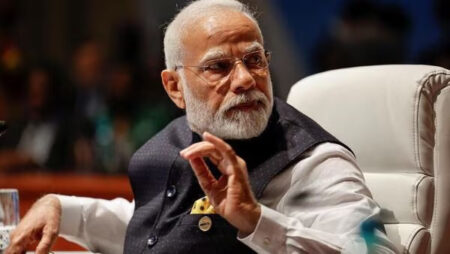In a landmark judgment, the Delhi Court delivered a powerful message emphasizing the rights of children in custody battles. The court unequivocally stated that a custodial parent cannot exploit the child as a mere tool, recognizing the child’s fundamental entitlement to the love and affection of both parents. This ruling marks a significant step towards promoting the welfare and well-being of children caught in the crossfire of parental disputes.

Child custody disputes can be emotionally charged and deeply contentious, often leaving a lasting impact on the children involved. These conflicts, while primarily centred around the parents, can inadvertently harm the child’s psychological and emotional development. Recognizing the need to address this issue, the Delhi Court delved into the heart of the matter and redefined the parameters of custodial rights.
The Court’s Ratio
The Delhi Court, in its comprehensive analysis, emphasized the child’s best interests as the guiding principle. The court recognized that the child’s emotional and psychological well-being depends on the presence and love of both parents. By deeming the child’s love for both parents as an inherent entitlement, the court aimed to ensure that the child is shielded from being used as a pawn or bargaining chip in custody battles.

Furthermore, the court acknowledged the negative consequences of parental alienation, where one parent attempts to undermine the child’s relationship with the other. It stressed the significance of fostering an environment that encourages healthy parent-child relationships and discourages any attempts to manipulate or exploit the child’s emotions.
The court’s ruling underscored the importance of shared parenting responsibilities, urging custodial parents to actively facilitate the child’s bond with the non-custodial parent. It called for an inclusive approach, wherein both parents are encouraged to play an active role in the child’s life, regardless of their marital or relationship status.
Impact on Custodial Parents
The Delhi Court’s judgment serves as a strong reminder to custodial parents of their responsibility towards their child’s emotional well-being. It emphasizes that custodial rights should not be misused to exert control or seek revenge against the non-custodial parent. Instead, the custodial parent must foster an environment that promotes the child’s connection with the other parent, recognizing the child’s inherent right to love and be loved by both parents.

The court also addressed concerns raised by custodial parents regarding the non-custodial parent’s involvement, ensuring that such participation does not infringe upon the child’s safety or overall welfare. While the child’s rights take precedence, the court emphasized that any concerns related to the non-custodial parent’s behaviour should be addressed through appropriate legal channels, rather than using the child as a shield or weapon.
Promoting the Welfare of Children
This significant judgment by the Delhi Court aligns with the broader international recognition of children’s rights and welfare. It echoes the principles enshrined in various international conventions and treaties, such as the United Nations Convention on the Rights of the Child (UNCRC), which emphasize the child’s right to maintain contact with both parents, barring exceptional circumstances.
The court’s ruling has far-reaching implications for the legal framework surrounding child custody battles. It urges courts and legal practitioners to consider the child’s perspective, recognizing their needs and desires in decisions related to custody and access. By prioritising the child’s best interests, the court’s ruling helps create a framework that promotes the overall well-being and development of the child.

The Delhi Court’s recent ruling, forbidding custodial parents from using their child as a tool, reaffirms the child’s entitlement to the love and affection of both parents. It sends a powerful message to parents embroiled in custody disputes, emphasizing the need to prioritize the child’s emotional and psychological well-being.
This landmark judgment, in line with international principles and conventions, serves as a significant step towards ensuring the protection and welfare of children during custody battles. This ruling will likely contribute to a more child-centric approach in family law, fostering healthier and more inclusive relationships between children and their parents.













